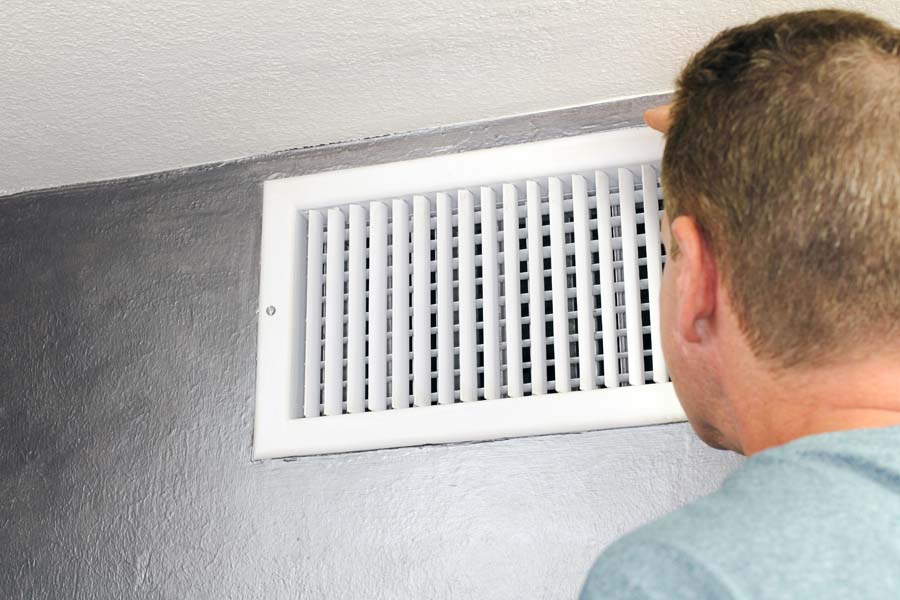How Does Closing Vents Affect Your HVAC System?

Many Michigan homeowners close off vents in unused rooms to manage household temperatures or reduce energy costs. This may seem like a logical way to cut down on energy consumption, but closing vents can negatively impact heating, ventilation, and air conditioning (HVAC) systems.
In this blog, we’ll explain why closing vents in an unoccupied room is not a practical way to reduce energy use.
This practice can lead to efficiency issues, increased wear and tear on your equipment, and even the need for heating and AC repair services from a professional company like Harriman Heating & Air Conditioning.
The Basics of HVAC Systems
An HVAC system is designed to regulate the air in your Livonia, home, maintaining comfortable temperatures throughout. Whether you have a central air conditioning installation or a ductless AC system, your HVAC relies on a balanced airflow to work efficiently.
Closing vents disrupt this airflow, causing unintended consequences.
Air Pressure and HVAC System Efficiency
When you close a vent in a room, your HVAC system doesn’t stop producing air. The system continues pushing the same amount of air but with fewer outlets for distribution.
This causes an increase in air pressure within the ducts.
Higher pressure makes the system work harder to maintain the desired temperature, which can lead to reduced efficiency and even breakdowns that require cooling system repair.
A common misconception is that closing vents will help save energy. However, because your HVAC system is designed to heat or cool a specific square footage, it will still operate at full capacity.
Increased Wear and Tear on Your HVAC System
Closing vents can cause uneven heating and cooling, making your HVAC system work harder in the long run. This added strain leads to more frequent breakdowns and costly repairs. Many Michigan homeowners may find themselves needing professional HVAC maintenance and repairs more often than necessary.
An overworked system may also shorten its lifespan; the cost of repairs and early replacements can quickly add up. If you’re seeking energy savings, it’s far more effective to invest in energy-efficient HVAC solutions or routine maintenance.
Temperature Imbalances
Another issue that arises from closing vents is temperature imbalance. In rooms with closed vents, temperatures can become extremely hot or cold, depending on the season. This causes your HVAC system to constantly cycle on and off in an attempt to regulate temperatures, which wastes energy and increases utility costs.
These imbalances may cause certain rooms to feel stuffy or uncomfortable, leading you to overwork your system. Instead of helping maintain efficient energy use, closing vents often leads to excessive strain on both the equipment and your wallet.
Ductwork Leaks and Damage
The increased air pressure caused by closed vents can also lead to leaks in your ductwork. When your system has to push air harder through fewer vents, it puts stress on the ducts.
Over time, this stress can create small cracks or exacerbate existing ones, leading to air leaks.
Leaky ducts are inefficient and can result in uneven cooling, higher energy bills, and an overall decline in system performance. Leaky ductwork also compromises your indoor air quality (IAQ).
If your ducts are already damaged, closing vents may make the problem worse. You may find yourself needing a trusted AC service provider to inspect and repair the ducts.
Risk of Freezing Coils
In some cases, closing too many vents can cause your HVAC system’s evaporator coils to freeze. When there is insufficient airflow across the coils, they can become too cold and freeze over, which impacts your system’s ability to cool effectively.
This is a common issue that leads to the need for emergency cooling system repair.
Better Alternatives for Efficiency
Instead of closing vents, there are more effective ways to improve your HVAC system’s efficiency and reduce energy costs in Livonia, and surrounding areas.
Here are some alternatives:
Install a Zoning System: Zoning systems allow you to control the temperature in different parts of your home without the need to close vents. This gives you the flexibility to adjust the temperature based on usage while avoiding the negative impacts of increased air pressure.
Regular HVAC Maintenance: Routine maintenance, such as tune-ups and duct cleaning, can keep your system running efficiently without the need for vent closures.
Regular check-ups from expert AC technicians can help you spot issues before they turn into bigger problems, ensuring your system works efficiently for years to come.
Invest in Energy-Efficient HVAC Systems: If you’re looking to reduce energy consumption, consider upgrading to a more energy-efficient HVAC system. Modern systems are designed to run more efficiently, saving you money in the long run.
Use a Programmable Thermostat: A programmable thermostat allows you to set different temperatures for different times of day, depending on your schedule. This helps ensure that your HVAC system isn’t overworking to heat or cool your home when it’s not necessary.
Harriman Heating & Air Conditioning recommends installing a smart thermostat as an easy and effective way to improve energy efficiency.
Keep Your Vents Open and Clear!
Closing vents to save energy or manage temperature may seem like a good idea, but the consequences can be significant. From decreased system efficiency and increased wear and tear to ductwork damage and frozen coils, this practice can lead to costly repairs and lower comfort levels in your Livonia, home.
Instead, focus on regular HVAC maintenance and invest in energy-efficient solutions to keep your home comfortable and your HVAC system running smoothly. To learn more about our services or for a free consultation, call Harriman Heating & Air Conditioning at 734-271-6200 or request service online today.

